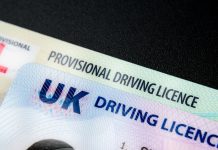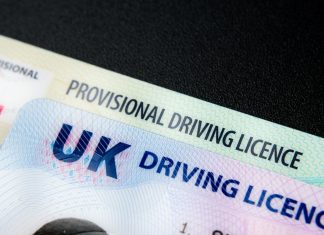
Last Updated on 4th November 2025
As families become more mobile, UK courts are asked to make decisions that cross borders, languages and traditions. Cultural background is relevant, but in England & Wales the guiding star is always the child’s welfare. This explainer sets out how courts weigh culture, which international rules apply, and what UK parents should do when a cross-border issue arises.
The UK baseline: welfare first, culture in context
- Children Act 1989, s.1 makes the child’s welfare the court’s paramount consideration. Judges apply the welfare checklist (the child’s needs; wishes/feelings in light of age and understanding; the effect of change; harm/risk; parents’ capability; range of orders available).
- Culture, language, religion and wider identity are weighed within that checklist, e.g., continuity of schooling in the child’s first language; links with extended family; religious practice, even though welfare remains decisive.
- Cafcass (the Children and Family Court Advisory and Support Service) advises the court and undertakes safeguarding checks. Practice Direction 12J requires the court to identify and manage risks where domestic abuse is alleged.
Takeaway: The court will respect a child’s cultural roots where it serves welfare, but will not allow culture to override safety, stability or the child’s best interests.

Cross-border cases: the rules that really matter
When a child crosses frontiers, jurisdiction (which country’s courts can act) and enforcement become central. Key instruments:
- Hague Convention 1980 (International Child Abduction): speedy return of a child wrongfully removed or retained across borders, unless narrow defences apply. Time is critical.
- Hague Convention 1996 (Parental Responsibility & Child Protection): who has jurisdiction (usually the child’s habitual residence), what law applies, and how foreign orders are recognised/enforced.
- Habitual residence anchors most cross-border decisions. It’s about the child’s real-world centre of life (duration, integration, school, family), not just passport or paperwork.
- Post-Brexit: the UK no longer uses Brussels IIa with EU states; Hague 1996/1980 and domestic law do the heavy lifting.
Not every country is a Hague signatory. Where the 1980 Convention doesn’t apply, remedies are more limited and slower; specialist advice is essential. Handling cross-border cases requires expert legal knowledge and cultural sensitivity, which is why it is a good idea to use the services of an international family law specialist who will be able to advise and streamline the legal process.
Relocation & travel: consent, court leave and urgent protections
- Taking a child abroad: If others share parental responsibility, you need their written consent or a court order. Where a Child Arrangements Order (lives with) is in force, the resident parent may take the child abroad for up to 1 month without further order (Children Act 1989, s.13) unless the order says otherwise.
- Relocation (internal or international): There’s no presumption for or against a move; welfare decides. The court weighs proposals for schooling, housing, contact plans (including virtual contact), language and community ties, and the practicality of maintaining relationships.
- Urgent protections: If you fear imminent removal, talk to a specialist about a Prohibited Steps Order, port alerts via the police/National Ports Office, or wardship in extreme cases.

When culture meets cross-border law (three quick scenarios)
-
Relocation from the UK to Spain (dual-national child)
The court examines welfare: schooling, language, integration, practical contact proposals (holiday blocks, video calls), and each parent’s capacity to promote the child’s relationship with the other. Cultural and family links to Spain count, but stability and credible plans carry the most weight.
-
Child retained overseas after holiday
If both countries are in Hague 1980, a return application is the usual route (habitual residence court decides long-term issues). Move quickly; delay can create factual arguments against return. Keep evidence of agreed return dates and tickets.
-
Non-Hague destination
You’ll need bespoke strategy: local counsel in the foreign state, diplomatic channels, mirror orders (if possible), and UK court measures to protect the child on return. Managing expectations and safety planning are key.
What to do first: a parent’s quick-action checklist
- Act fast & gather facts: dates, flights, addresses, schools; screenshots of messages/consents.
- Check the map: is the other country a Hague 1980/1996 signatory? (HCCH country lists)
- Secure documents: passports, birth certificates, existing court orders.
- Get specialist help: a Resolution-accredited international family solicitor; Reunite International helpline for abduction/retention support.
- Think welfare plan: schooling, medical care, language continuity, and safe, realistic contact proposals.
- Safety first: where abuse is relevant, raise PD12J and consider supervised handovers, interim orders.
FAQs
Do UK courts consider my child’s culture and language?
Yes, within the welfare checklist. Courts weigh the benefits of preserving language, religion and extended family links alongside stability and safety.
Can I travel abroad with my child without the other parent’s consent?
Not if they have parental responsibility, unless you have a lives-with order (then up to 1 month abroad is permitted). Otherwise, get consent or leave of the court.
What if the destination country isn’t in the Hague system?
It’s harder but not hopeless. You’ll need local legal advice, UK court measures, and careful risk management. Act early.
How do UK courts decide jurisdiction?
Usually by the child’s habitual residence. Temporary stays rarely change it; integrated, settled life might.
How long do Hague return cases take?
They’re designed to be swift, but timetables vary. Delay can complicate outcomes, seek help immediately.
Useful Resources
- Children Act 1989 (welfare checklist; s.13): legislation.gov.uk
- PD12J (Domestic Abuse): judiciary.uk / justice.gov.uk
- Hague Conventions (1980 & 1996) & country lists: hcch.net
- UN Convention on the Rights of the Child: ohchr.org
Key points to remember
- Welfare is paramount; culture is a real factor, not a trump card.
- Habitual residence and Hague 1980/1996 determine most cross-border routes.
- Consent or court leave is required for international travel (save for limited one-month exceptions).
- Act early; the first 72 hours can shape the whole case.
- Always put forward workable, child-centred plans (schooling, contact, safety).
Editor’s note / disclaimer: This guide is general information for England & Wales and not legal advice. Cross-border cases turn on specific facts and fast-moving rules. If a dispute may be brewing, speak to a Resolution-accredited family solicitor promptly.


































